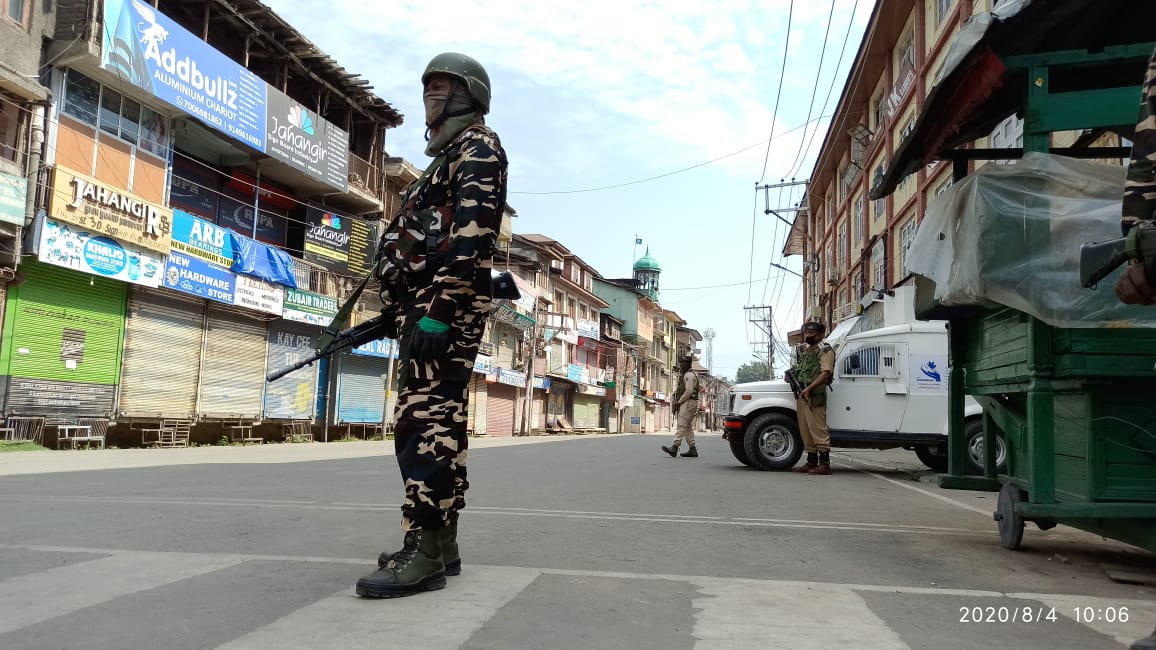
How Aug 5 move mainstreamed separatists, discredited politicians in J&K
A year after the Modi government read down Article 370 that accorded “special status” to Jammu and Kashmir, and sliced it into two Union Territories, a pall of gloom and silence hangs over the region.

When former Union minister Saifuddin Soz tried coming out of his Srinagar home on July 31, armed policemen deployed for his security forcibly shut the gate and shooed away journalists lining the residence of the senior Congress leader.
“The government is telling the Supreme Court that Soz is free and he can go anywhere. Look what they are doing! This is a police state. Please tell the Supreme Court,” Soz told a reporter of a New Delhi-based TV news network before cops pushed him back into his house.
Soz could well be the metaphor for politics in Jammu and Kashmir, India’s erstwhile state that was reduced to the status of a Union Territory on August 5, 2019 by the Narendra Modi government. Like Soz, J&K has been pushed out of the world’s sight, its voice stifled and its future locked behind a wall of uncertainty.
The denouement is the end of a process of alienation that started in 2016. That year, Kashmir had erupted after security forces killed militant commander Burhan Wani. Amid fears of protests swelling into a full-blown uprising, the region was put under a six-month long lockdown.
A year after the Modi government read down Article 370 that accorded “special status” to Jammu and Kashmir, and sliced it into two Union Territories, a pall of gloom and silence hangs over the region.
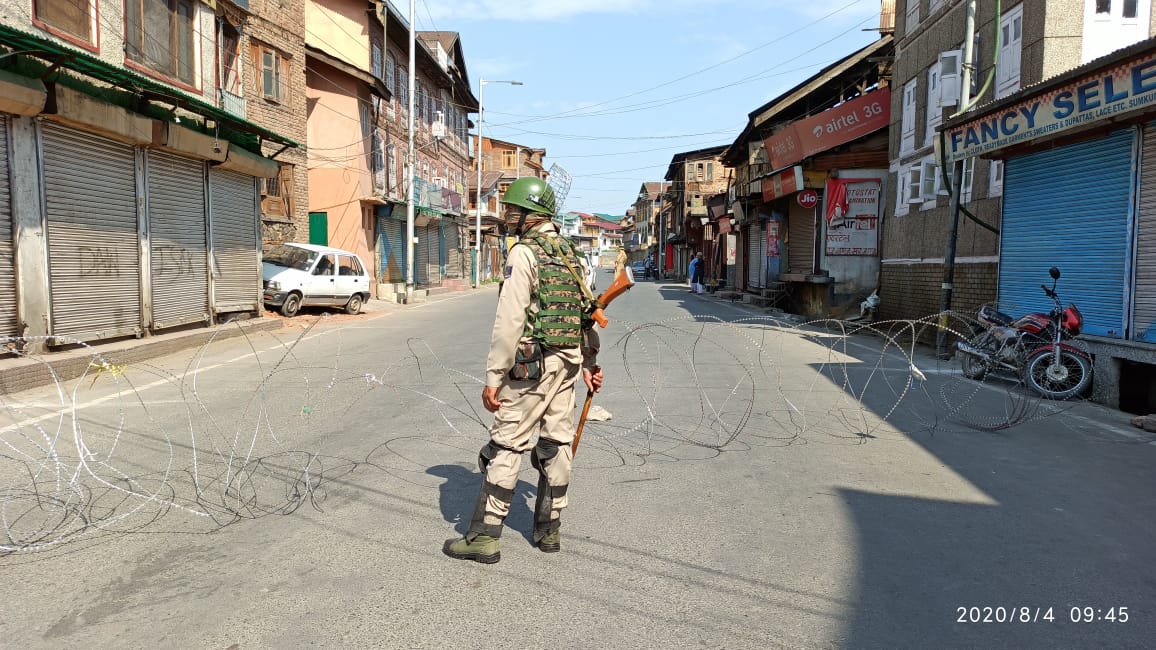
Like Soz, many senior Kashmiri politicians who swore by the Indian Constitution are anguished by the way the central government has treated them. This so-called mainstream camp has vanished from Jammu and Kashmir’s political landscape. Most of the politicians are either confined to their heavily-guarded homes or serving house detention after they were taken into custody on August 5 last year, unsure what the future holds for them.
“Since 2016, this (mainstream) camp had got pushed to peripheries. They were struggling to regain the space,” said Srinagar-based political analyst Professor Noor M Baba.
“Now, there is no mainstream in Kashmir. Even those who held the fort of Delhi in Kashmir for years and shared power with the present regime at different points of time, feel betrayed and stabbed in the back,” said Baba.
Divide and conquer
For decades, more so after the rise of the BJP in Delhi in 2014, the regional political parties made Article 370, which guaranteed a “special position” for the restive state in Union of India, as cornerstone of their politics.
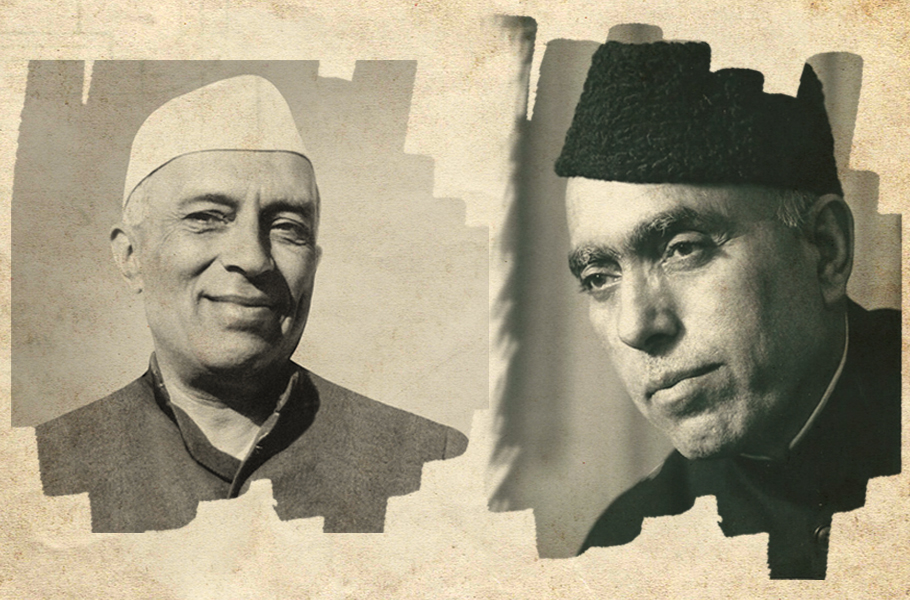
In the year running up to India’s independence, Sheikh Abdullah changed the name of his party from Muslim Conference to National Conference, to sound more secular and appease the Indian National Congress (INC) led by Jawaharlal Nehru.
Playing by the ‘divide and conquer’ rulebook of the colonial rulers, Nehru elevated Sheikh Abdullah to power in J&K. He was later thrown into jail when suspicions arose about his loyalty to India. Even today, NC leaders speak bitterly about Nehru’s ‘betrayal’, but don’t stop the party from contesting elections under the auspices of the Indian Constitution.
The BJP has taken a leaf from the same British rulebook. Through a series of manoeuvers, it has divided the mainstream politicians and pitted the people against them.
Related news: One year of revocation of Article 370: What has changed in J&K
Days after the August 5 move last year, Prime Minister Narendra Modi, in his televised speech, said abrogation of Article 370 would “usher in new era of dawn” in Kashmir. The government then claimed the decision was aimed at hitting the separatists and bringing an end to the three-decade-old militancy.
“Instead, it hit the mainstream politics even more,” said Peoples Democratic Party (PDP) spokesperson Firdous Tak. “Those who were nurturing the idea of democracy and swearing by the Constitution have been betrayed.”
Speechless in Srinagar
The NC leaders have been silenced. Its chief and sitting MP from Srinagar, Farooq Abdullah, hasn’t spoken a word about the revocation of autonomy. He recently inaugurated an ice cream parlour in Srinagar.
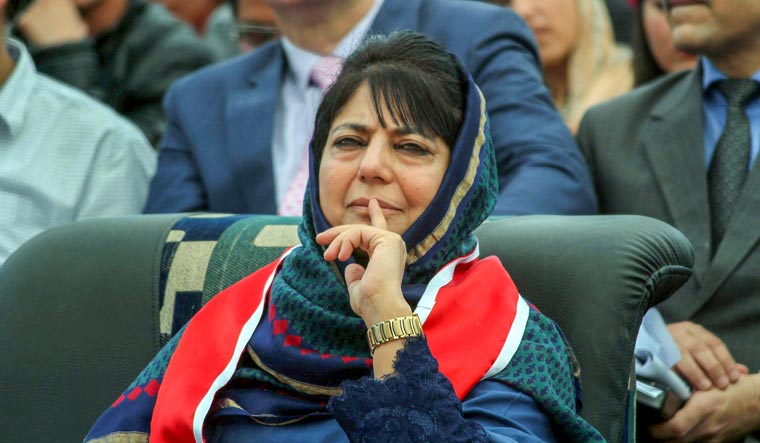
Mehbooba Mufti’s PDP, the other regional mainstream party, is a divided house. “There is pressure on Mehboobaji to mend fences with New Delhi and accept the new reality. But she seems determined, even if it means spending more time in detention,” a senior PDP leader said, wishing anonymity. Mehbooba Mufti is currently under detention.
PDP advocates a soft border flourishing with trade and tourists between two parts of divided Kashmir. The party’s self-rule agenda calls for a joint Indo-Pak mechanism for governing Kashmir. But, in the year since autonomy revocation, the party has struggled to keep its flock together. A number of senior leaders have either resigned or gone into political isolation, or joined other mainstream parties.
PDP’s soft-separatist agenda clicked with people in the region where the sentiment of freedom from India is a reality and most mainstream leaders carried forward “pro-India” and “pro-Constitution” politics, while relying on the slogan of the special status to address Kashmiri identity politics.
Related news: J&K leader Sajad Lone released 5 days short of a year
That slogan has been snatched from them now and there is nothing new these leaders can offer to people, at least for now. The Government of India faces a double challenge on J&K front – restoring the “normalcy” and restoring the mainstream politics.
The raging conflict had taken the focus away from the corruption, mis-governance and scams in the border state – in 2018, a survey described J&K as one of the most corrupt states in India while way back in 2005, it had earned the notorious distinction of being No. 2 in the list of corrupt states.
When the Centre unilaterally read down the constitutional provision on the morning of August 5 last year, it struck at the heart of mainstream politics in Jammu and Kashmir. In one stroke, the move decimated the regional forces – National Conference, Peoples Democratic Party, Peoples Conference and other smaller parties – which were already battling credibility crisis.
A community betrayed
In the eyes of common Kashmiris, who rally behind militants and worship them as “heroes”, these political parties are “agents” representing Delhi’s cause in Kashmir.
“It is not only the question of mainstream politicians, an entire population of J&K has been betrayed,” said CPI(M) leader MY Tarigami. “From a separate country in 1947 to a state and now a Union territory, we have been humiliated. The August 5 decision was not only an attack on the identity of Kashmir, but the Constitution of India as well.”
That could explain the absence of dissent when political leaders, including three former chief ministers, were detained and booked under the Public Safety Act for months together before being released.
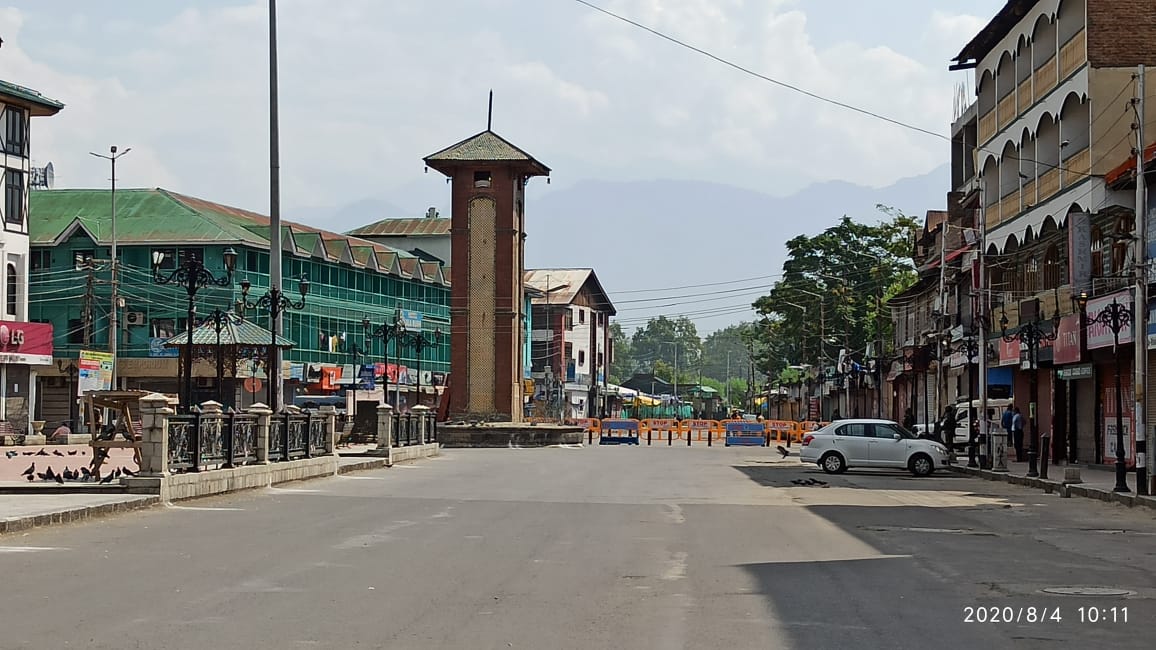
“The political mainstream in Kashmir since the times of Sheikh Abdullah has seen Delhi, not the local people, as a source and path to power. This trend continued till 2018 when no one mourned the fall of an elected government which had a mandate to remain in office for three more years,” said political analyst Zaffar Choudhary.
By August 5 last year, he said, the local mainstream parties, as also Congress, stood “so much discredited and unpopular already” that not many people wanted to empathise with any of the leaders arrested and detained.
This saga of disillusionment has over shadowed the politics in Jammu as well. In the region, where the political narrative of mainland Jammu has been allowed to dominate the aspirations of people in Pirpanjal and Chenab valley region, the politics is seen as BJP versus the rest, and is largely a reaction to the events that unfolds in Kashmir.
“As the mainstream politics in Kashmir Valley operates in a separatist environment, the politics in Jammu has always been nothing more than a response and reaction to Kashmir,” said Choudhary.
An uneasy calm
“There is lull in Kashmir, lull in Jammu. Everything that is being seen is superficial, just the survival strategies of politicians,” he said.
So, what does the imminent future holds for politicians in J&K? “Besides a number of other things, including special status and identity, which are being fiercely debated these days, the August 5 developments offer a clean slate for the mainstream political process to resume. But it depends on how much the parties are able to find a difference between realism and rhetoric,” he said.
The political uncertainty that clouded Kashmir on August 5 has only deepened with passage of each day. However, New Delhi hasn’t stopped sending signals. Another former chief minister, Omar Abdullah, inferred in a recent interview that his party, the National Conference, the oldest in Kashmir, would be contesting elections if the status of J&K as a State in the Union of India were to be restored.
This was followed by the release of former BJP ally, Sajad Lone, from house detention. Lone, who is seen as very close to the present dispensation in New Delhi, hasn’t yet spoken about what future holds for him. This has only deepened the mystery.
“We keep on seeing television channels and other elements of influence projecting one or the entities as “face of new politics”. Politics doesn’t happen like that. It is not the television screen on the wall that you can replace old with the new. Politics is a process. It is difficult to predict this moment as how and when the political process resumes in Jammu and Kashmir,” Choudhary said.

